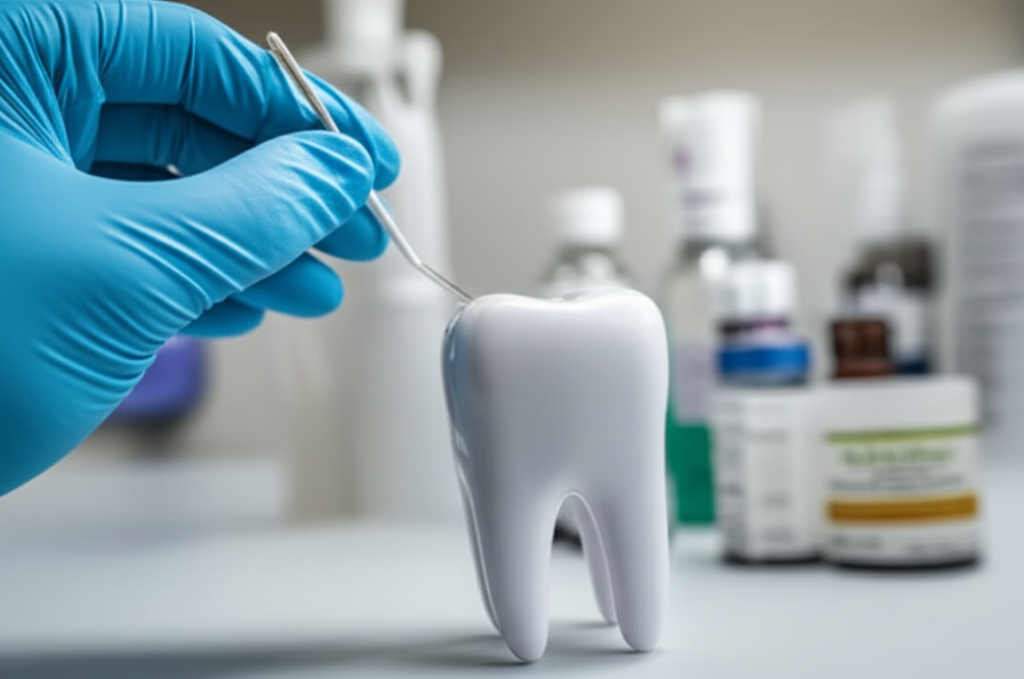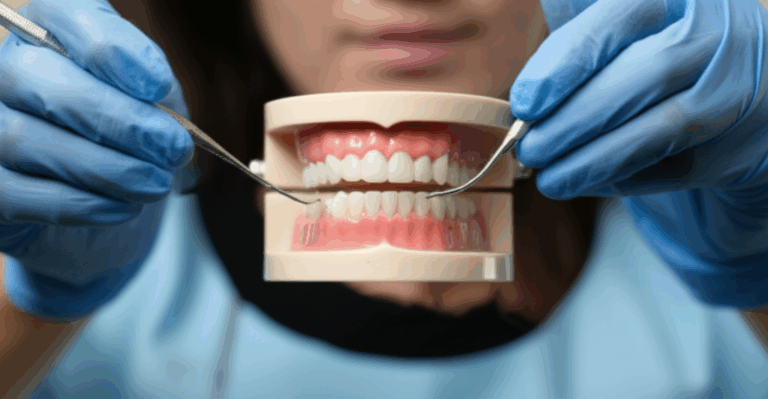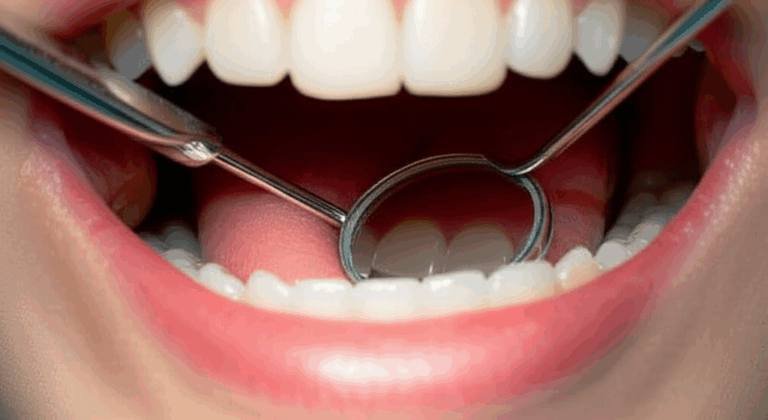
Doctor or Dentist for an Abscess? Understanding Your Best Option
Summary:
Ever have a sore, swollen spot in your mouth and wonder, “Should I call my doctor or see my dentist?” This article clears up the confusion about tooth abscesses, gum infections, and urgent tooth problems. You’ll learn how to spot the signs, why acting fast matters, and exactly who—doctor or dentist—can help you feel better and safe the quickest. Knowing these basics can save teeth, stop bad illness, and even save lives.
Written with help from Dr. Joe Dental, DDS
Table of Contents
What Is an Abscess? (And Why You Shouldn’t Ignore It)
Ever notice a puffy bump on your gums or get a deep, nasty ache in your tooth? That’s often an abscess—a pocket of pus made by germs. Think of it like a small balloon full of yucky stuff hiding inside your tooth or gums.
Abscesses are a real problem. Sometimes, people hope they’ll go away on their own, but that’s a bad idea! An untreated abscess can spread the infection quickly—into your jaw, neck, or even your body. In rare cases, it can cause sepsis, which is life-threatening.
Ignoring an abscess is like ignoring a ticking time bomb. If you see any signs (even small ones), act fast. Don’t wait.
What Are the Types of Oral Abscesses?
When people talk about dental abscesses, they usually mean one of two kinds:
- Periapical Abscess: This starts inside the tooth, often right at the bottom of the tooth root. It’s usually from a deep cavity or a cracked tooth.
- Periodontal Abscess: This happens in the gums, next to a tooth, often from gum trouble.
Here’s a simple table to help you see the difference:
| Type | Where It Starts | Common Cause | Who Treats It |
|---|---|---|---|
| Periapical Abscess | Inside the tooth | Tooth decay, injury | Dentist, Endodontist |
| Periodontal Abscess | In the gum | Gum disease/injury | Dentist, Periodontist |
Sometimes you might get an abscess under a dental crown, after pulling a tooth, or even around a wisdom tooth! No matter where it pops up, fast treatment is important.
Key Symptoms: How to Know If You Have an Abscess
Wondering if you might have an abscess? Here’s a simple checklist:
- Throbbing tooth pain—the kind that just won’t stop
- Fever or chills
- Swollen gums, face, or neck (sometimes your eye looks puffy!)
- Sore, swollen jaw or neck glands
- Sensitive teeth to hot or cold
- Bad taste in your mouth, sometimes with pus leaking close to a tooth
- Trouble opening your mouth wide or swallowing
If you have even a few of these, don’t ignore them. The sooner you see the right person, the quicker you’ll feel better.
Why Should You Go to a Dentist First?
For tooth or gum problems, the dentist is the main helper. Here’s why:
- Dentists know teeth and gums really well. They’ll find and fix the real problem.
- They have the right tools: X-rays, little mirrors, tests, and the right medicine.
- Dentists make real fixes—whether it’s cleaning, draining, or even pulling a bad tooth to stop infection.
Think of your tooth as a leaky pipe. A regular doctor might clean up the water, but the dentist will repair the leak itself. See the difference?
If your regular dentist can’t help, you might be sent to a specialist—like an endodontist for root canals, a periodontist for gum abscesses, or an oral surgeon for tricky cases.
What Will a Dentist Do for an Abscess?
Here’s what will probably happen at the dentist:
First, your dentist listens to your story, checks your mouth, and may take an X-ray. Is it an abscess or something else? They’ll figure it out.
With numbing medicine, your dentist makes a small cut in your gum or tooth to let out the pus. Often, the pain gets much better because the pressure is gone.
Often, you’ll get antibiotics to make sure the infection doesn’t get worse. But here’s a secret: antibiotics alone almost never work. The abscess must be drained.
The dentist will offer the right fix—a root canal to clean an infected tooth, deep cleaning for gum problems, or if the tooth is too broken, an extraction.
If you need extra care, like a failed crown, tricky root, or big jaw infection, your dentist will send you to the right expert.
The dentist will explain everything in easy words. If you’re worried about the cost, many clinics give clear estimates before doing anything.
Want to see how new tools help dentists with these jobs? Take a look at a digital dental lab for examples of cool, modern equipment dentists use.
When Should You See a Doctor for an Abscess?
Sometimes, you can’t get to a dentist right away. Maybe it’s the weekend, late at night, or there’s no local dentist open. That’s when a doctor or urgent care center can help for now.
Call a doctor (General Practitioner/GP) or go to urgent care if:
- Your face is swelling fast.
- You have a high fever and bad pain.
- No dentist is around and the pain is too much.
Doctors can:
- Give antibiotics to slow down the infection.
- Give painkillers like ibuprofen or acetaminophen.
- Check if the infection is moving out of your mouth.
- Quickly send you to a dentist once you can get one.
But remember, doctors and urgent care can’t fix the source of the problem—they give temporary help only. You must see a dentist as soon as you can for full treatment.
What Happens at Urgent Care or the ER?
If things get really bad—like swelling makes it hard to breathe, swallow, or talk, or you feel sick all over—you may need the Emergency Room (ER). This is true for both adults and kids.
Go to the ER right now if you have:
- Swelling that spreads to your neck, eye, or blocks your throat
- Trouble breathing or swallowing
- High fever with chills
- Heart racing
- Feeling confused or very sleepy
At the ER, doctors act fast. They’ll give you medicine through an IV, watch your vital signs, and may bring in an oral surgeon to drain the abscess. But here’s the thing: after you’re safe, you’ll still need a dentist to finish the fix. ER care is step one only.
Believe it or not, thousands go to the ER each year because of untreated tooth abscesses. Most could skip it if they saw a dentist right away!
Why Waiting Can Be So Dangerous
Putting off treatment can cause scary problems:
- Cellulitis: Infection can spread through your face, jaw, or neck. That’s very painful—and dangerous.
- Sepsis: Bacteria get into your blood and attack your organs. This can kill.
- Osteomyelitis: Infection eats away at your jawbone.
- Ludwig’s Angina: Fast-spreading infection under your tongue or jaw can choke off your airway.
So don’t just hope it will get better. Every day you wait, things can get worse.
How Can You Keep Abscesses Away?
Here’s how to avoid abscesses:
- Brush your teeth two times a day with toothpaste that has fluoride.
- Floss every day to clean between teeth.
- See your dentist twice a year for checkups and cleaning.
- Ask about a night guard dental lab if you grind your teeth at night.
- Eat less sugar and stay away from super sticky candy.
- Wear a mouthguard for sports—you’ll keep your teeth safe from injuries that could turn into infections.
Some people need extra help because of health problems or family risks. If you’ve had dental work, get regular check-ins.
What’s the Right Action Plan if You Suspect an Abscess?
Not sure what to do? Here’s a simple step-by-step:
You might need a dentist with extra training if the abscess is under a crown, after a tough tooth pull, or comes from gum disease. Some clinics work with a top dental ceramics lab for advanced fixes.
FAQ: Common Questions About Abscesses
What does a dental abscess look like?
It might be a swollen red bump (sometimes with a white or yellow center) on your gum, or a deep sore spot inside your tooth.
How fast can a tooth abscess spread?
Sometimes in only a day or two! Waiting “just a few days” can make the difference between an easy fix and a big emergency.
Does a dental abscess always hurt?
Not always at first. Some people notice swelling or a bad taste before pain. Pain may come and go, or get very strong—never ignore a mouth that’s swollen.
Can antibiotics alone cure an abscess?
No. Antibiotics help stop it from spreading, but only draining the pus or removing the sick tooth can really fix it.
What if my child has a dental abscess?
Call your child’s dentist right away. In kids, infections can get worse quickly. Never wait if your kid has jaw pain, fever, or trouble swallowing.
Key Points to Remember
- Dentists are the main experts for abscesses—they fix the real problem and keep you safe.
- Doctors and urgent care can help for now but give only short help. Always see a dentist after.
- ER is only for life-threatening problems like trouble breathing, big swelling, or very high fever.
- Don’t ignore tooth pain or swelling. Acting early means an easier, cheaper fix and way less pain.
- Brushing, regular checkups, and smart habits stop most abscesses before they start.
Reviewed by Dr. Joe Dental, DDS.
References:
- American Dental Association. “Dental Abscesses: Symptoms and Treatments.”
- Mayo Clinic. “Tooth Abscess: Overview.”
- CDC Oral Health Basics.
- Dr. Joe Dental, DDS. Personal interview, 2024.
Want to learn more about new dental tools? Visit a digital dental lab or check how a china dental lab helps with top crowns, bridges, and more.
Your health is always worth that call—don’t wait if your mouth feels wrong!








